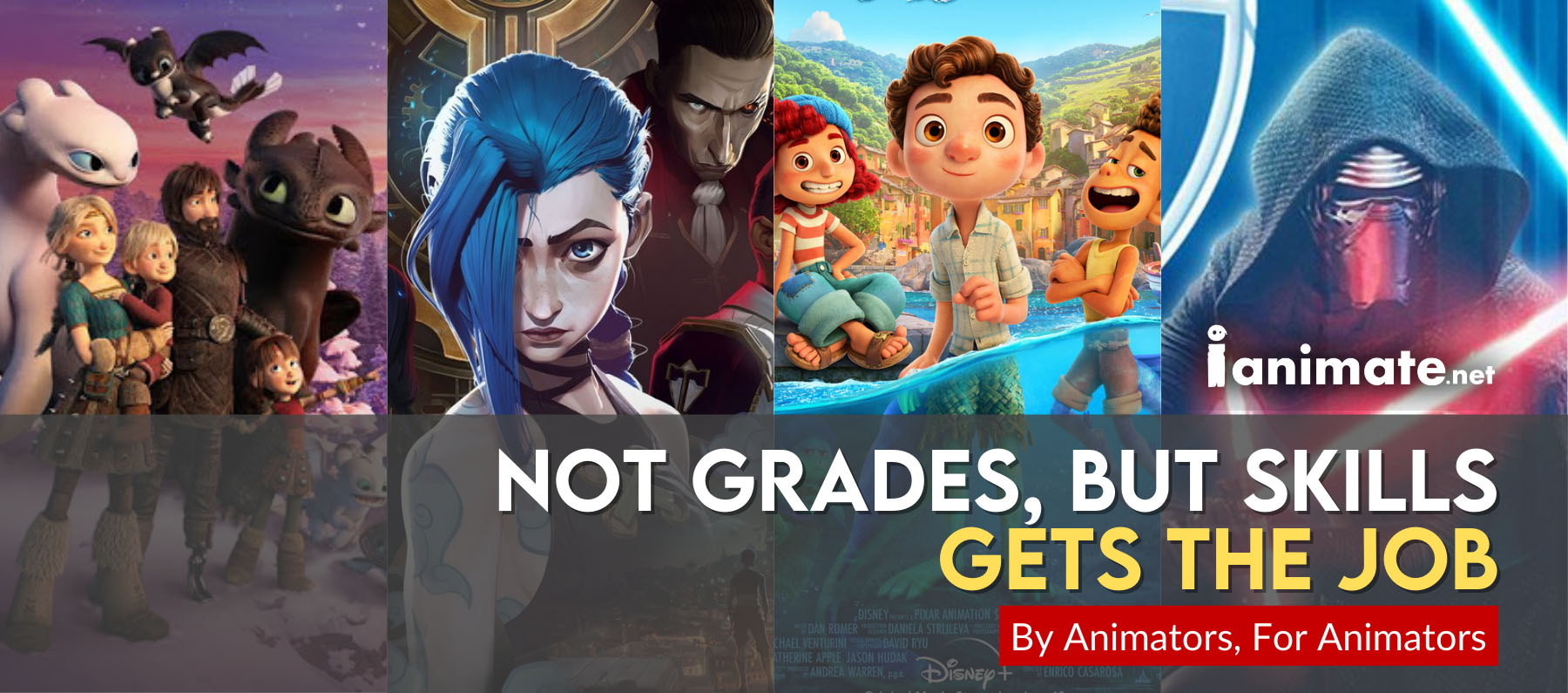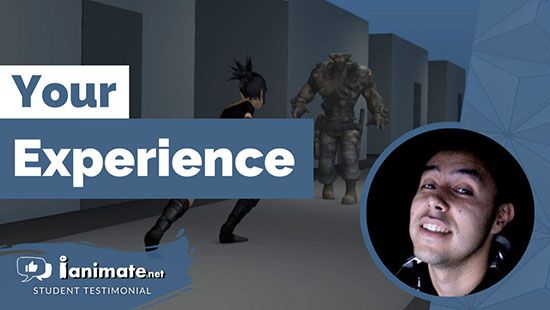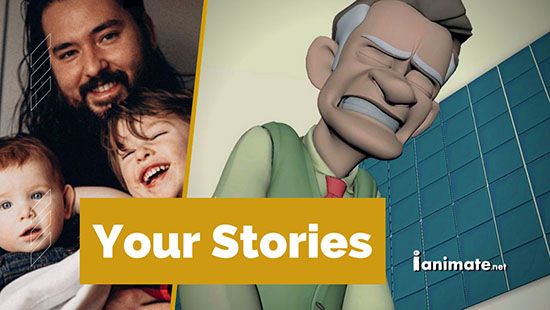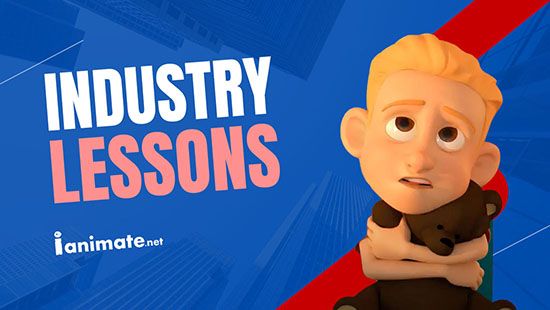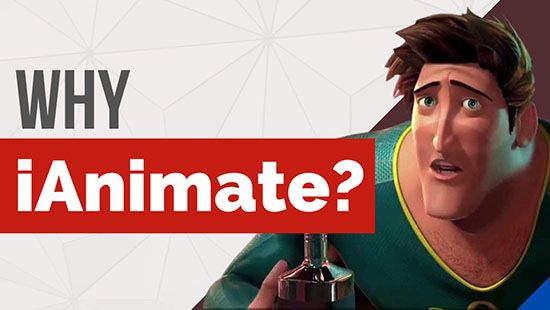Animation Career and Experiences That Matters
Article by Richard Arroyo & iAnimate Team
As the competition grows, it's essential to learn and gain experience that adds value to your animation career. Skills and knowledge are acquired by learning from the jobs, problems, and work experience we face.
Starting Your Animation Career Path
Ever wonder how animators get their skills and start their animation careers? Sure, you can go to a traditional school and learn how to become an animator, but it can take you a long time. Of course, you could also teach yourself with YouTube videos and tutorials - but it's hard to master all the intricacies of animation without the guidance of true professionals.
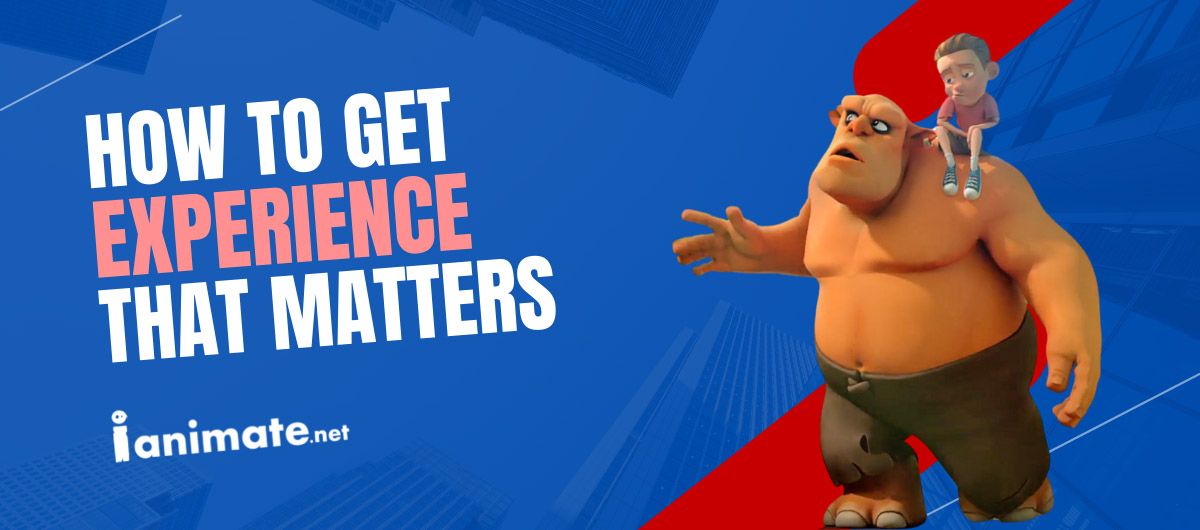
How could we begin this journey? You can live the dream of working in the film industry, animating movies or video games iAnimate offers top-notch courses taught by some of the best people in the animation industry. Students of these courses get the opportunity to have a career in animation after graduation or training. They will also learn from professional instructors and industry leaders who have already worked their dream jobs in the animation field for years.
1. Animation Career That Matters
This deals with what it takes to create an impactful experience. Of course, there are so many different ways to think about an animation car. Still, I am trying to get you in the mindset for what I believe is essential for creating a spectacular experience. The best animations touch upon life’s lessons, making them better human beings.
Successful artists don't just wow us with the final product but also the process it takes to get there. The journey begins with stronger bonds between people, and it creates a deeper appreciation for the ultimate goal: creating an animation career experience that matters.
Understanding and appreciating this journey is critical in creating authentic experiences that leave an ever-lasting expression. But unfortunately, I think artists get caught up in the inward thinking about getting from point "A" to point "B" while forgetting to engage along the way.
As an artist, when you share an experience with somebody, it's essential to realize that they may not be seeing what you see. People might see the same things differently, and it's always a good idea to understand how people view your work.
There are a lot of great resources online for artists looking to gain more knowledge on how their audience will perceive their art or how to understand their audience better.
Moreover, courses at iAnimate will teach you how to create acting, and it’s one of the subjects required for animation. Believable characters with a grounded performance develop experiences that will wow the audience.
2. Look for an indie or small studio and apply where others don't go.
There are animation jobs in demand for these studios that you can consider for starting your animation career. Because indie and small studios tend to be more willing to take risks on new talent, they need somebody who has good skills but can also come in and produce some fresh ideas. In addition, independent animators can branch out from their comfort zones and create things they would not have been allowed to make elsewhere, outside of the studio system.
There are many benefits in your animation career working for a small studio. The first and most prominent of these benefits is that small studios provide more jobs in the animation field and create more opportunities for their employees. This means you can find more work faster and get your foot in the door of a company much more accessible. In addition, small studios have fewer employees than bigger studios with matching requirements, which means less competition for jobs and internships.
As an artist or animator, you could be working on multiple projects and tasks. Depending on the studio size, you can work either by yourself or on a small team. It will improve your skills and give you a chase to build a strong portfolio reel without needing to spend the money on schools.
3. Become an animation intern.
An animation career is a competitive field that requires much work and resources to build up experience. However, many young animators are passionate and eager to get their foot in the door, so they might be willing to do a stipend-based internship with you, giving you valuable experience before you’re ready to take on any paid positions.
You might be able to convince an artist or a company to take you on as an intern if you’re willing to do the work.
The main reason behind internships is simple:
- You can pay for training or get the training and experience which helps you accelerate your animation career.
- You would typically pay to get experience, learn, and make connections.
- It also adds to your resume with an authentic experience studio value.
- Your portfolio is filled with exciting and known projects.
- It helps you shift from an amateur to young talent on the rise.
4. Establish connections with the community and industry professionals
Whether you're an animator or just getting started in your animation career, follow professional creatives on their social media pages and send them messages. They will likely respond to your message with a few words of support or constructive criticism. But more importantly, ask for advice and tell them about what you're working on. Again, ask for critiques, and remember to share your work professionally.
A workshop or tutorial is an efficient method for acquiring knowledge and professional advice. There is no set schedule, and you learn at your own pace. Listen to podcasts about the animation career, an animation career review, etc.
Summing Up
To have a successful animation career, you need experience proving you have the right skills the studio wanted. Achieving your success in a career may be challenging, but it seems doable if you surround yourself with the right people and have the right mindset. So don't waste your time. Instead, gain animation career information, sign up for your next animation career workshop and take your first step toward your dream.
